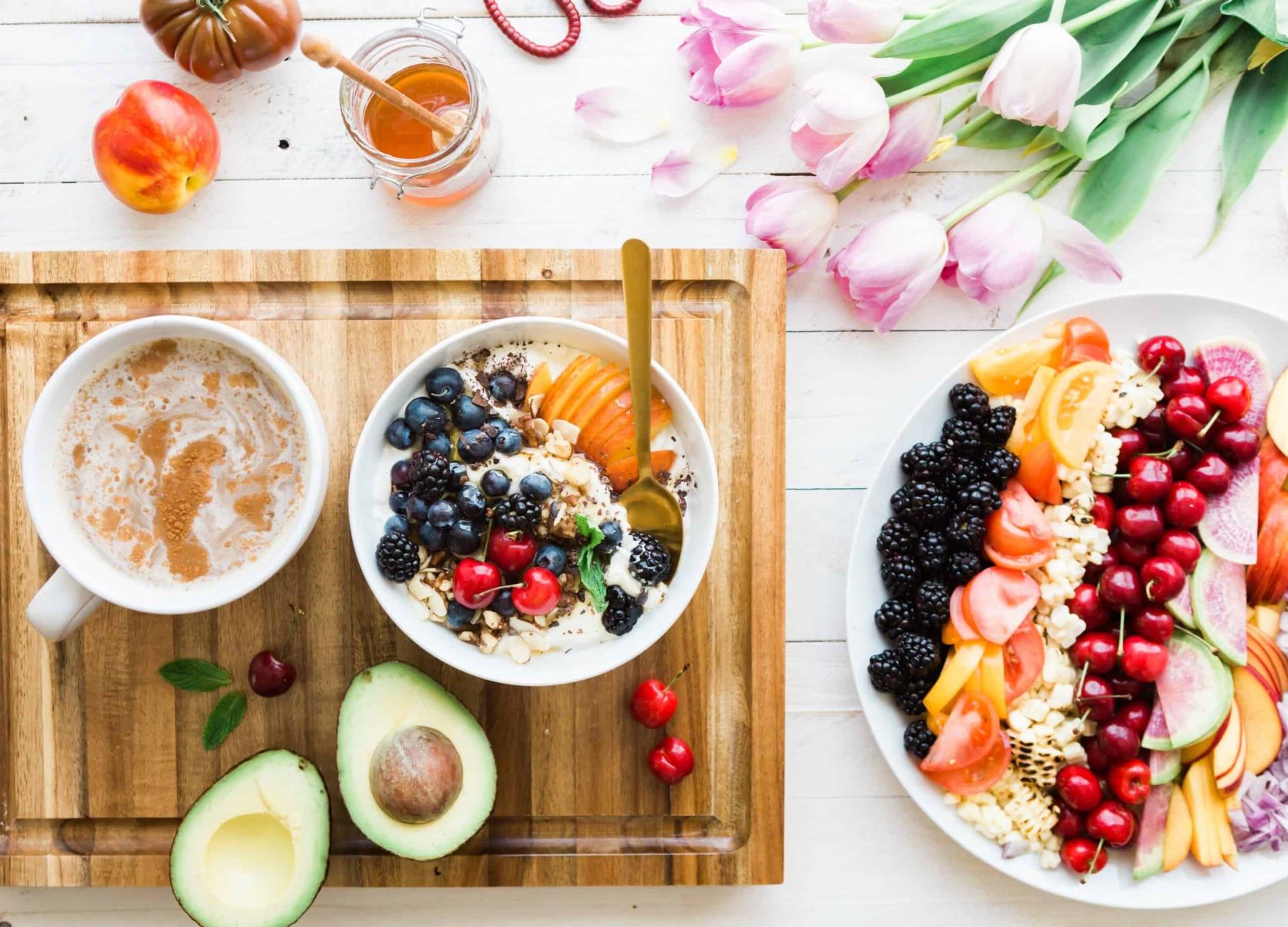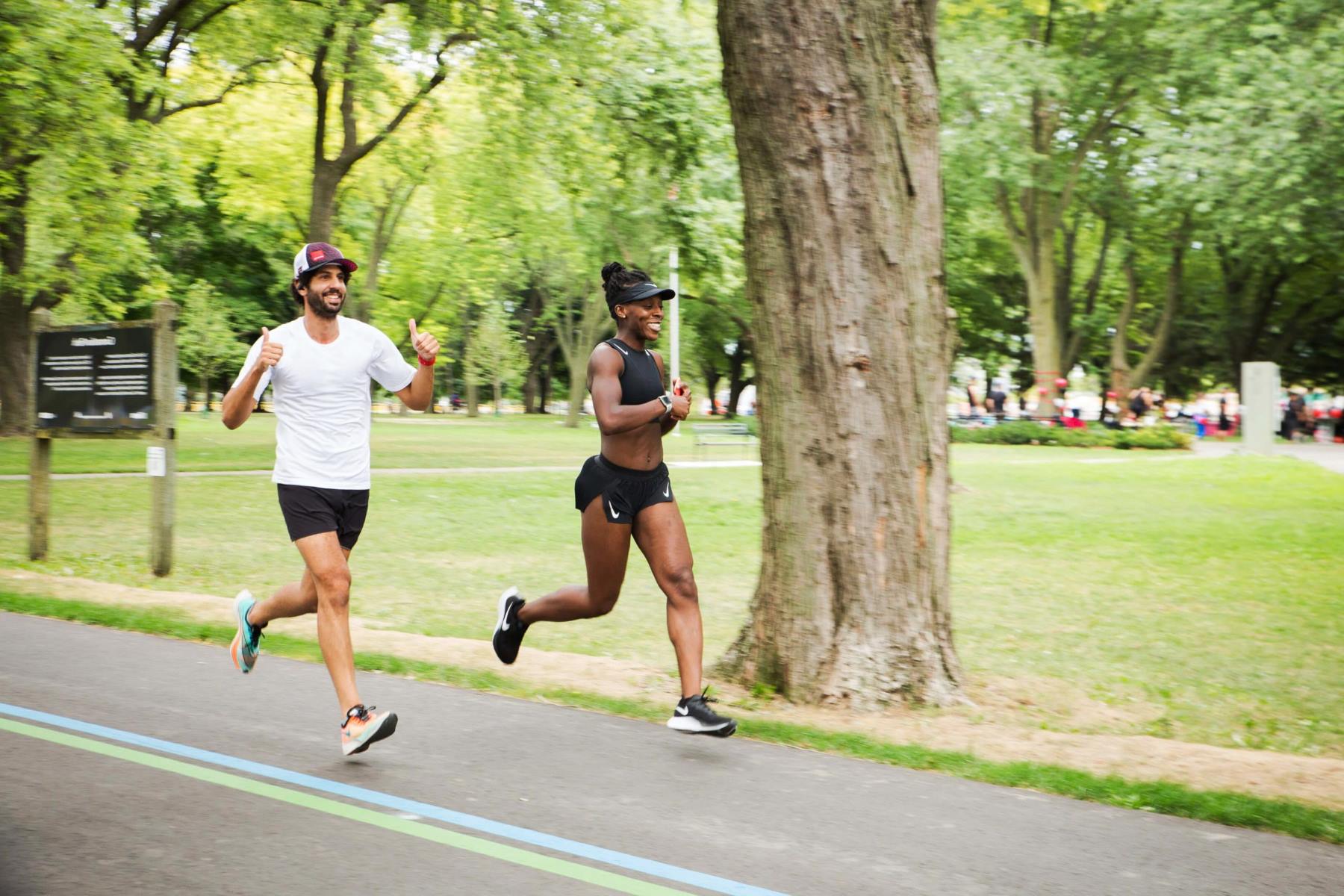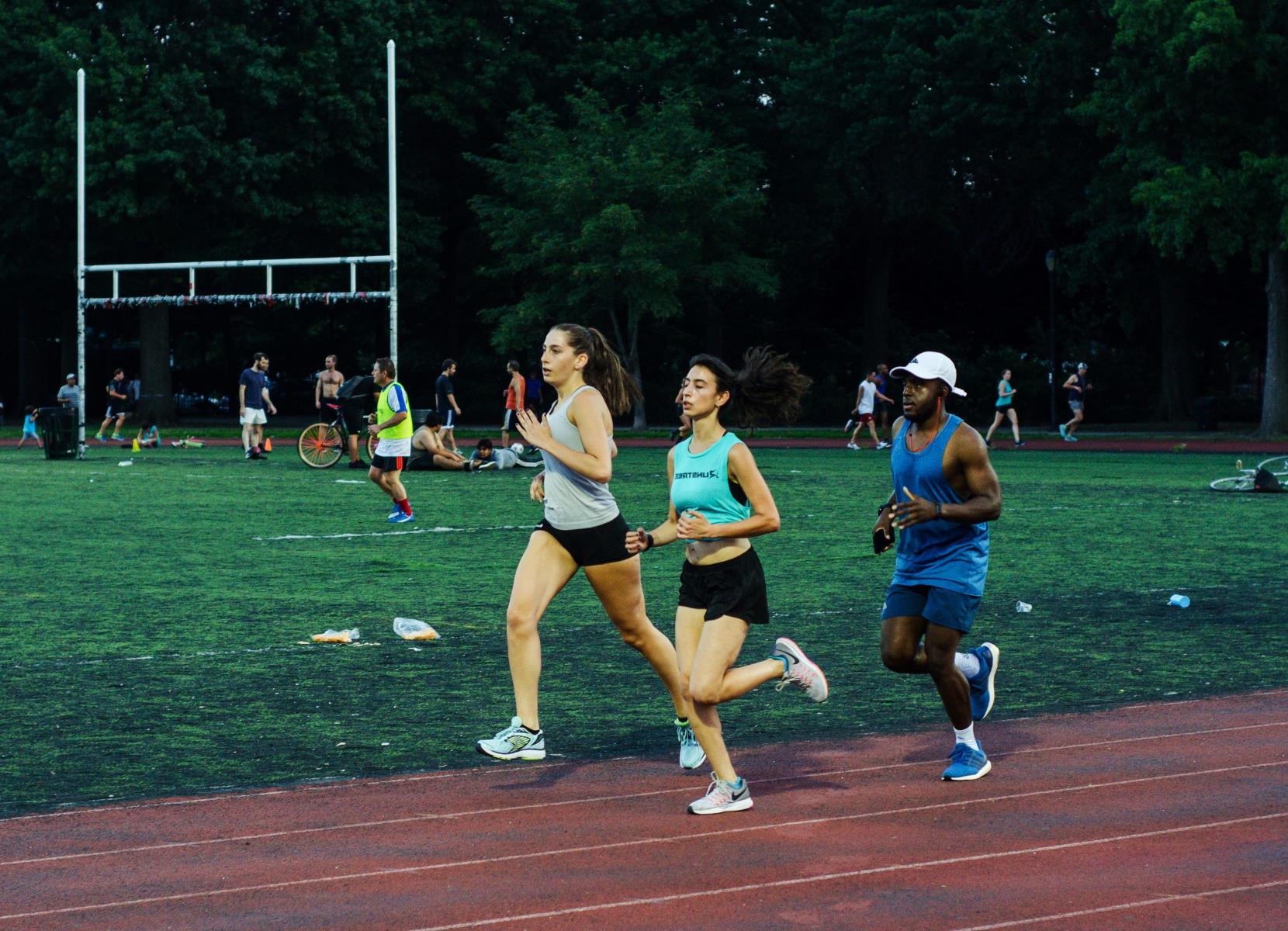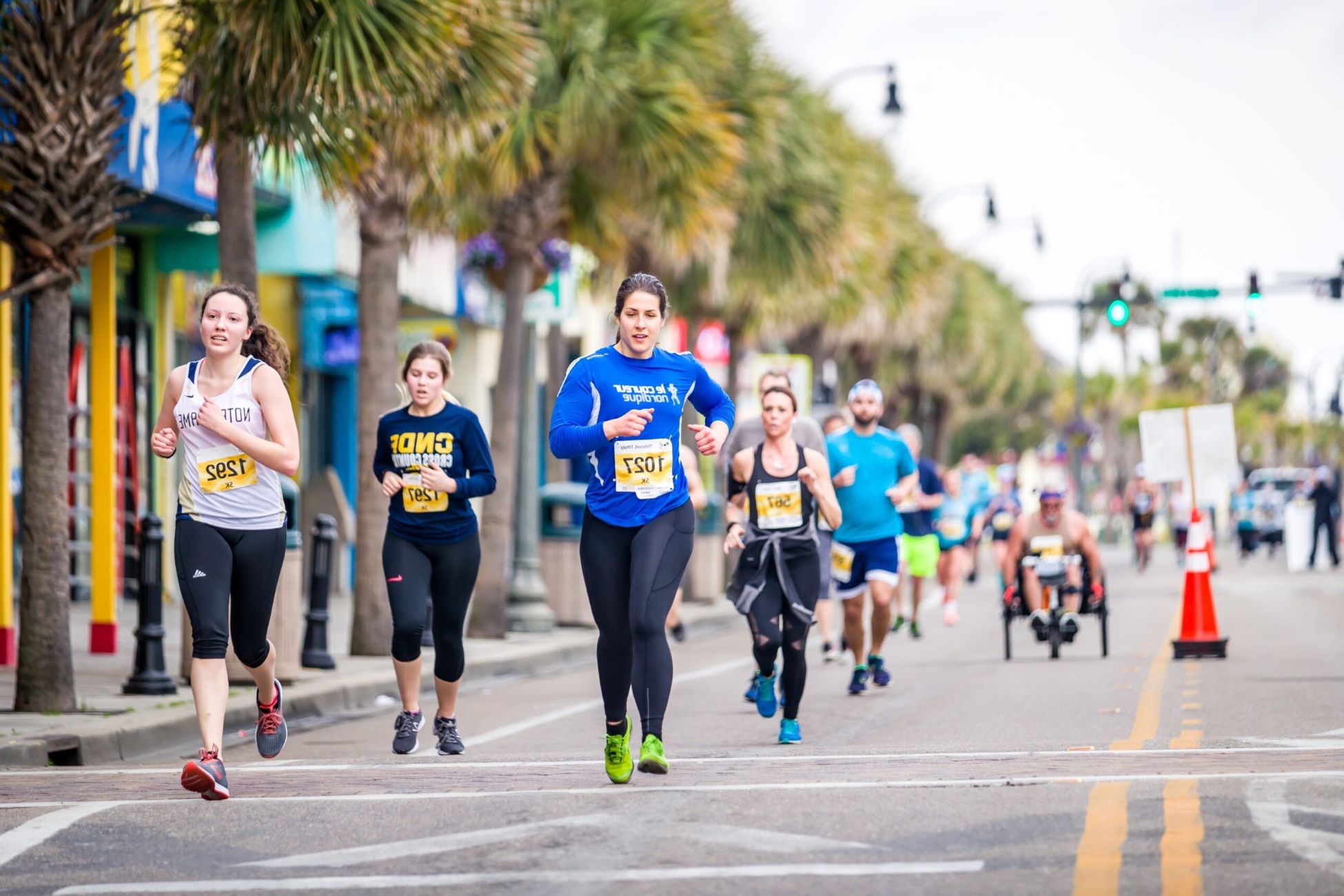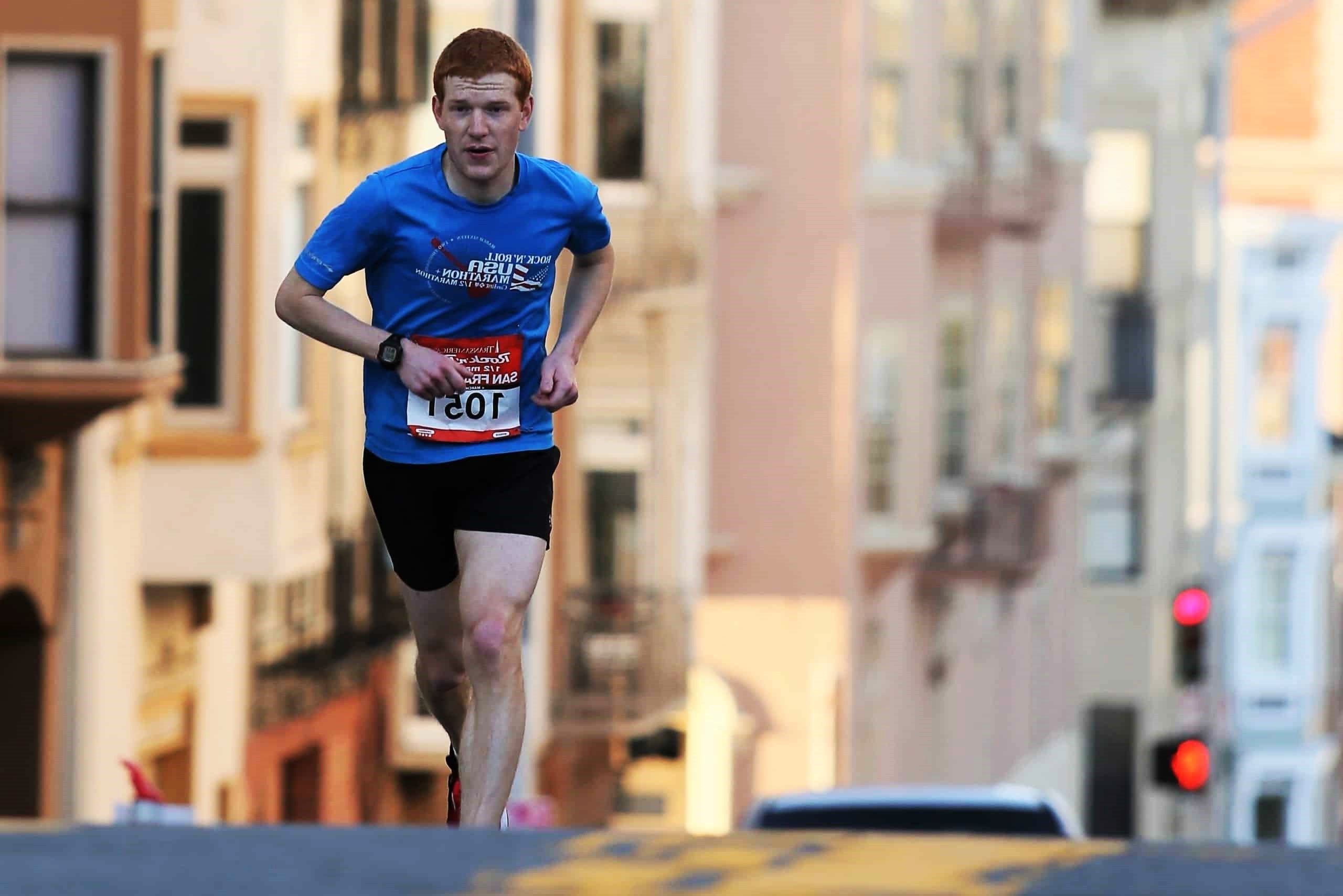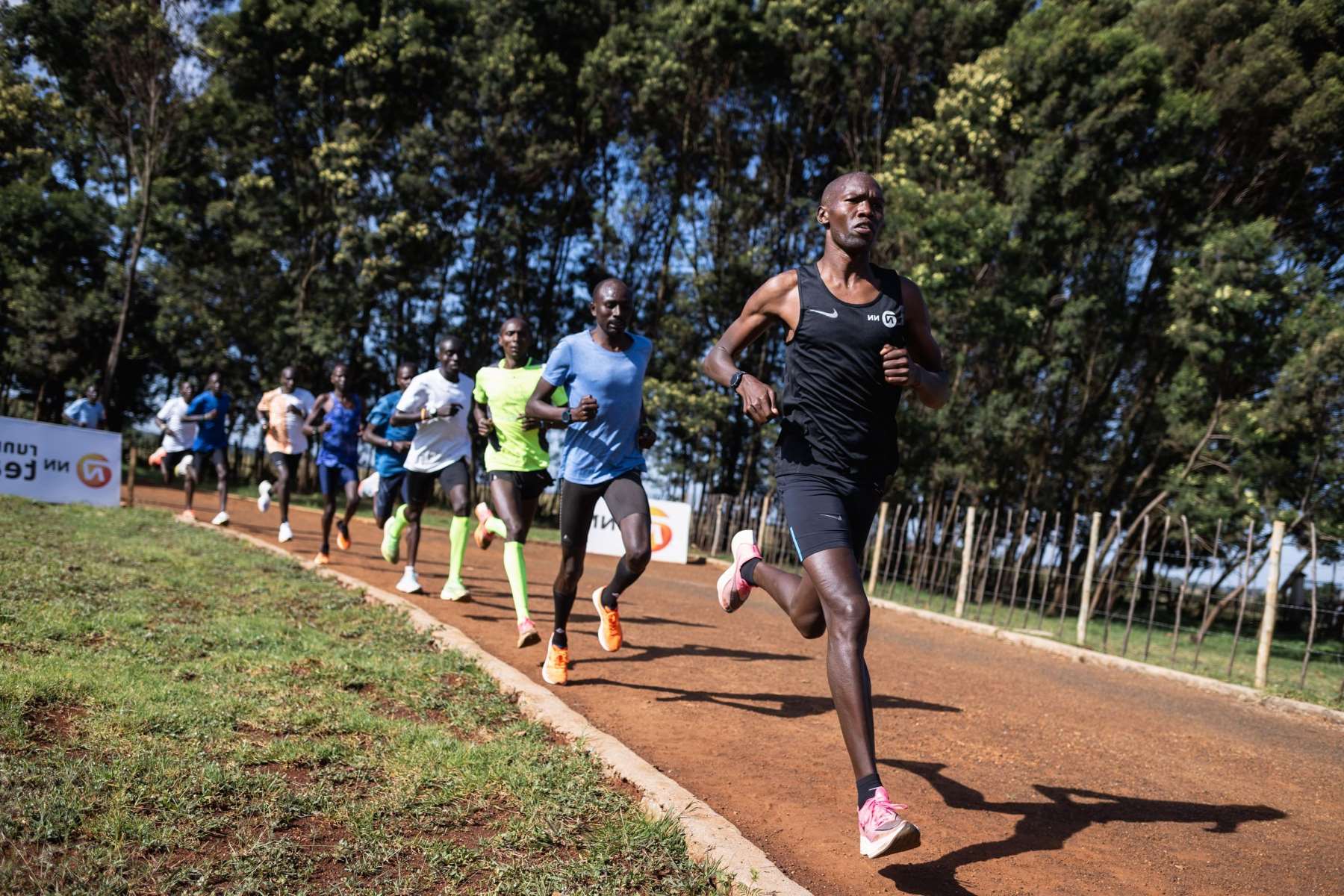Home>Health & Nutrition>Fueling Your Body Before A 5K: What To Eat
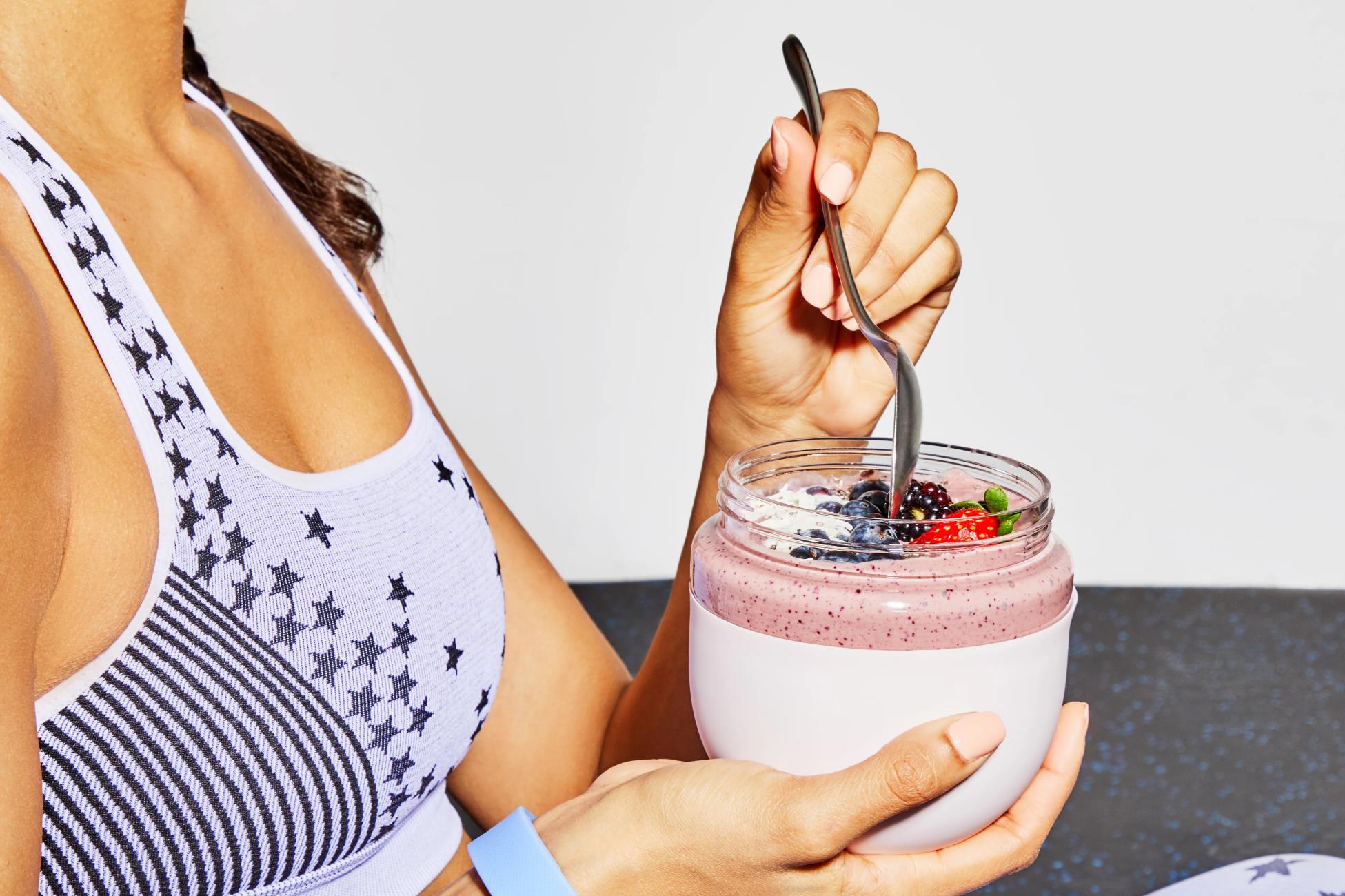

Health & Nutrition
Fueling Your Body Before A 5K: What To Eat
Published: February 20, 2024
Prepare your body for a 5K with the right nutrition. Discover the best foods to fuel your health and performance.
(Many of the links in this article redirect to a specific reviewed product. Your purchase of these products through affiliate links helps to generate commission for Therunningadvisor.com, at no extra cost. Learn more)
Table of Contents
- Understanding the Importance of Pre-Race Nutrition
- Carbohydrates: The Key to Pre-5K Fueling
- Protein and its Role in Pre-Race Meals
- Fats: How Much is Too Much Before a 5K?
- Hydration: The Often Overlooked Element of Pre-Race Nutrition
- Timing is Everything: When to Eat Before a 5K
- Sample Pre-Race Meal Ideas for Optimal Performance
Understanding the Importance of Pre-Race Nutrition
Proper nutrition plays a pivotal role in preparing your body for a 5K race. It's not just about eating; it's about fueling your body with the right nutrients to optimize performance and endurance. The food you consume before a 5K can significantly impact your energy levels, stamina, and overall race experience.
When it comes to pre-race nutrition, the goal is to provide your body with the necessary fuel to sustain your energy levels throughout the race. This means focusing on foods that are easily digestible, rich in carbohydrates, and moderate in protein and fats. Carbohydrates serve as the primary energy source for endurance activities, making them a crucial component of pre-race meals. They are stored in the muscles and liver as glycogen, which is the body's most readily available form of energy during exercise.
In addition to fueling your muscles, pre-race nutrition also aims to optimize hydration levels. Proper hydration is essential for maintaining fluid balance, regulating body temperature, and supporting muscle function. Dehydration can lead to decreased performance, early fatigue, and increased risk of injury, making it imperative to prioritize adequate fluid intake before a 5K race.
Understanding the importance of pre-race nutrition involves recognizing that the foods you consume directly impact your body's ability to perform at its best. By strategically planning your pre-race meals, you can ensure that your body is adequately fueled and ready to tackle the 5K challenge. This proactive approach to nutrition sets the stage for a successful race day, allowing you to perform at your peak potential and enjoy the experience to the fullest.
Read more: Fueling Your Body Before A 10K: What To Eat
Carbohydrates: The Key to Pre-5K Fueling
Carbohydrates play a pivotal role in pre-5K fueling, serving as the primary source of energy for endurance activities. When consumed before a 5K race, carbohydrates are broken down into glucose, which is then stored in the muscles and liver as glycogen. This stored glycogen serves as a crucial energy reserve that can be tapped into during physical exertion, providing the necessary fuel to power through the race.
The body's glycogen stores are finite, and prolonged exercise, such as a 5K race, can deplete these reserves. Therefore, it is essential to top up glycogen stores through carbohydrate consumption before the race. Opting for easily digestible carbohydrates, such as whole grains, fruits, and starchy vegetables, can provide a quick and accessible source of energy for the body.
In the hours leading up to a 5K race, focusing on carbohydrate-rich foods can help ensure that glycogen stores are adequately replenished. Pasta, rice, bread, and cereals are popular choices for pre-race meals due to their high carbohydrate content. These foods can be paired with lean proteins and healthy fats to create a well-rounded meal that supports sustained energy release and muscle recovery.
It's important to note that not all carbohydrates are created equal. While simple carbohydrates, such as those found in sugary snacks and refined grains, can provide a rapid energy boost, they are often followed by a crash in energy levels. On the other hand, complex carbohydrates, such as whole grains, legumes, and vegetables, offer a more sustained release of energy, making them an ideal choice for pre-5K fueling.
In addition to solid food sources, liquid carbohydrates can also be incorporated into pre-race nutrition. Fruit juices, smoothies, and sports drinks can provide a convenient way to boost carbohydrate intake and enhance hydration levels before a 5K race. These liquid options are particularly beneficial for individuals who may have difficulty consuming solid foods close to race time.
By prioritizing carbohydrates in pre-5K fueling, runners can optimize their energy reserves and set the stage for a successful race. The strategic consumption of carbohydrates ensures that the body is equipped with the necessary fuel to sustain performance, enhance endurance, and maximize the overall race experience. With the right carbohydrate-rich choices, runners can power through the 5K with confidence and vitality.
Protein and its Role in Pre-Race Meals
Protein plays a crucial role in pre-race meals, contributing to muscle repair, recovery, and overall performance during a 5K race. While carbohydrates take center stage in fueling endurance activities, protein should not be overlooked in the pre-race nutrition strategy. Incorporating a moderate amount of protein into pre-race meals can provide several benefits that support optimal race performance.
One of the primary functions of protein in pre-race nutrition is its role in muscle repair and recovery. Endurance activities, such as a 5K race, place significant demands on the muscles, leading to micro-tears and muscle fatigue. Consuming protein before the race helps to initiate the repair and rebuilding process, ensuring that the muscles are in the best possible condition for the upcoming physical exertion. Additionally, protein consumption can aid in reducing muscle soreness and accelerating the recovery process post-race, contributing to overall muscle health and resilience.
In addition to its role in muscle repair, protein also plays a key part in sustaining energy levels during prolonged physical activity. While carbohydrates serve as the primary fuel source for endurance exercise, the inclusion of protein in pre-race meals can help stabilize blood sugar levels and prolong the release of energy. This can be particularly beneficial during longer races or for individuals with a slower pace, as it provides a steady and sustained source of energy to support performance throughout the 5K.
When selecting protein sources for pre-race meals, it is important to prioritize lean and easily digestible options. Lean proteins, such as poultry, fish, tofu, and legumes, offer high-quality protein without the added burden of excessive fat, which can slow down digestion. Including these lean protein sources in pre-race meals ensures that the body receives the necessary amino acids to support muscle function and repair without causing digestive discomfort or sluggishness.
Furthermore, the combination of protein with carbohydrates in pre-race meals can create a balanced and comprehensive nutritional profile. Pairing carbohydrates with a moderate amount of protein can enhance glycogen storage, promote muscle recovery, and support sustained energy release during the race. This synergistic combination provides a well-rounded approach to pre-race nutrition, addressing the body's need for both immediate energy and long-term muscle support.
By recognizing the role of protein in pre-race meals, runners can optimize their nutritional intake to support muscle function, recovery, and sustained energy levels during a 5K race. Incorporating lean and easily digestible protein sources into pre-race meals contributes to overall race readiness, ensuring that the body is equipped with the essential nutrients to perform at its best. With the right balance of protein and carbohydrates, runners can enhance their race day experience and maximize their potential on the course.
Fats: How Much is Too Much Before a 5K?
When it comes to pre-5K nutrition, the role of fats is a topic of consideration. While carbohydrates and protein take the spotlight in fueling and supporting race performance, the impact of fats on pre-race meals cannot be overlooked. Fats play a crucial role in the body's energy metabolism and overall health, but the question arises: how much is too much before a 5K race?
In the context of pre-race nutrition, the focus is on consuming foods that provide readily accessible energy and support endurance without causing digestive discomfort or sluggishness. While fats are an essential macronutrient that the body relies on for various functions, including energy storage and hormone production, excessive fat intake before a 5K can hinder performance.
The digestion of fats is a relatively slow process compared to carbohydrates and protein. Consuming a high-fat meal before a 5K race can lead to delayed gastric emptying and prolonged digestion, potentially causing discomfort and a feeling of heaviness during the race. Additionally, the body's preference for utilizing carbohydrates as the primary fuel source during endurance activities means that an excessive intake of fats before a 5K may not align with the body's immediate energy needs.
In the hours leading up to a 5K race, it is advisable to prioritize easily digestible and low-fat meal options to avoid potential gastrointestinal issues and sluggishness. While healthy fats, such as those found in avocados, nuts, and seeds, are valuable components of a balanced diet, their consumption in the immediate pre-race period should be moderated to support optimal race performance.
Instead of focusing on high-fat foods, runners can turn their attention to carbohydrate-rich and easily digestible options that provide the necessary energy for the upcoming race. By prioritizing carbohydrates and incorporating a moderate amount of protein, runners can ensure that their pre-race meals are tailored to support energy release, muscle function, and overall race readiness without the potential drawbacks associated with excessive fat intake.
In essence, while fats are an essential part of a well-rounded diet, their role in pre-5K nutrition should be approached with moderation. By striking a balance between carbohydrates, protein, and fats, runners can optimize their pre-race meals to support energy levels, digestive comfort, and overall race performance. Prioritizing easily digestible and low-fat meal options before a 5K race sets the stage for a successful and enjoyable race experience, allowing runners to perform at their best without the burden of excessive fat intake.
Hydration: The Often Overlooked Element of Pre-Race Nutrition
Hydration stands as a cornerstone of pre-race nutrition, yet it is often underestimated in its significance. Proper hydration before a 5K race is critical for optimizing performance, supporting physiological functions, and safeguarding against the potential risks of dehydration. The body's fluid balance directly influences endurance, stamina, and overall race experience, making it imperative to prioritize hydration as an integral component of pre-race nutrition.
Dehydration can have detrimental effects on race performance, leading to decreased energy levels, impaired thermoregulation, and compromised muscle function. As the body loses fluids through sweat during physical exertion, failure to replenish these losses before a 5K race can result in early fatigue, decreased endurance, and an increased susceptibility to heat-related illnesses. Therefore, maintaining optimal hydration levels before the race is essential for mitigating these risks and ensuring that the body is primed for the demands of the upcoming physical activity.
In the context of pre-race hydration, the goal is to strike a balance between fluid intake and fluid loss to achieve a state of euhydration, where the body's fluid levels are adequately replenished. This involves not only consuming fluids but also considering the timing and composition of the beverages to support hydration. Water stands as a fundamental choice for pre-race hydration, offering a simple and accessible means of replenishing fluid losses and supporting optimal physiological function.
In addition to water, sports drinks can be valuable in pre-race hydration, especially for individuals engaging in prolonged or intense physical activity. These beverages contain electrolytes, such as sodium and potassium, which play a crucial role in fluid balance, muscle function, and overall hydration. By incorporating sports drinks into pre-race hydration, runners can replenish electrolyte losses and support fluid retention, thereby enhancing their readiness for the 5K race.
The timing of hydration is another critical consideration in pre-race nutrition. While it is essential to maintain hydration throughout the day leading up to the race, paying attention to fluid intake in the immediate hours before the event is particularly important. Sipping on water or sports drinks in the hours leading up to the 5K can help ensure that the body enters the race adequately hydrated, setting the stage for optimal performance and minimizing the risk of dehydration-related issues.
By recognizing the often overlooked element of hydration in pre-race nutrition, runners can proactively address a key determinant of race performance and overall well-being. Prioritizing hydration before a 5K race supports endurance, thermoregulation, and muscle function, ultimately contributing to a more successful and enjoyable race experience. With a focus on optimal hydration, runners can enhance their readiness for the 5K and set the stage for a performance that reflects their true potential.
Timing is Everything: When to Eat Before a 5K
The timing of pre-race meals plays a pivotal role in optimizing performance and ensuring that the body is adequately fueled for the upcoming 5K race. When to eat before a 5K is a critical consideration that directly impacts energy levels, digestion, and overall race readiness. Striking the right balance between consuming a meal early enough to allow for digestion and late enough to provide sustained energy during the race is essential for runners seeking to perform at their best.
Ideally, pre-race meals should be consumed 2 to 3 hours before the start of the 5K. This timeframe allows for sufficient digestion and absorption of nutrients while minimizing the risk of gastrointestinal discomfort during the race. Meals consumed within this window provide the body with a readily available source of energy in the form of glycogen, derived from carbohydrates, which is essential for sustaining endurance and performance.
The composition of the pre-race meal also influences the timing of consumption. Meals rich in carbohydrates, moderate in protein, and low in fat are recommended for pre-5K fueling. Carbohydrates serve as the primary energy source, while protein supports muscle repair and recovery. Avoiding high-fat foods closer to the race helps prevent digestive issues and ensures that the body can efficiently utilize the consumed nutrients for energy production.
For individuals who prefer a lighter meal or have a sensitive stomach, a smaller snack can be consumed 30 to 60 minutes before the race. This snack should primarily consist of easily digestible carbohydrates, such as a banana or a sports drink, to provide a quick source of energy without causing discomfort or digestive distress.
Hydration timing is equally crucial in pre-race preparation. In the hours leading up to the 5K, it is essential to prioritize fluid intake to ensure optimal hydration levels. Consuming water and electrolyte-rich beverages throughout the day leading up to the race supports fluid balance and helps prevent dehydration during the event.
By aligning the timing of pre-race meals and hydration with the body's digestive and energy needs, runners can optimize their readiness for the 5K race. This strategic approach ensures that the body is fueled, hydrated, and prepared to perform at its best, ultimately contributing to a more enjoyable and successful race experience. Timing truly is everything when it comes to pre-5K nutrition, and by paying attention to the when, runners can set the stage for a performance that reflects their true potential.
Sample Pre-Race Meal Ideas for Optimal Performance
When it comes to fueling your body before a 5K race, the right pre-race meal can make a significant difference in your performance and overall race experience. Optimal pre-race nutrition involves selecting foods that are rich in carbohydrates, moderate in protein, and low in fat, while also prioritizing hydration. Here are some sample pre-race meal ideas that can help you prepare for the 5K while supporting your energy levels and endurance:
1. Whole Grain Pasta with Grilled Chicken and Vegetables
A classic pre-race meal, whole grain pasta provides a substantial source of carbohydrates to fuel your muscles, while the grilled chicken offers lean protein for muscle repair and recovery. Adding a variety of colorful vegetables not only enhances the nutritional profile of the meal but also provides essential vitamins and minerals to support overall health and performance.
2. Quinoa Salad with Mixed Greens and Tofu
Quinoa, a nutrient-dense whole grain, serves as an excellent carbohydrate source for sustained energy release. Paired with mixed greens and tofu, this meal offers a balanced combination of carbohydrates and protein, while also providing a range of micronutrients and antioxidants to support your body's readiness for the 5K race.
Read more: Improve Your 5K Speed With This Workout
3. Oatmeal with Fresh Berries and Almond Butter
A lighter option for those who prefer a smaller pre-race meal, oatmeal topped with fresh berries and a dollop of almond butter offers a simple yet effective combination of carbohydrates, fiber, and healthy fats. The natural sugars from the berries provide a quick energy boost, while the almond butter contributes to sustained energy release and adds a touch of satiating fats.
4. Brown Rice Bowl with Black Beans, Avocado, and Salsa
This plant-based pre-race meal features brown rice as the carbohydrate base, complemented by black beans for protein and fiber. The addition of avocado provides healthy fats, while salsa adds flavor and a dose of hydration-rich vegetables. This vibrant and satisfying meal offers a well-rounded nutritional profile to support your performance during the 5K.
5. Smoothie with Banana, Spinach, Greek Yogurt, and Honey
For those who prefer a liquid pre-race option, a nutrient-packed smoothie can be an excellent choice. Blending together banana, spinach, Greek yogurt, and a drizzle of honey creates a refreshing and easily digestible beverage that delivers a combination of carbohydrates, protein, and essential nutrients to fuel your body for the upcoming race.
These sample pre-race meal ideas are designed to provide a balance of carbohydrates, protein, and hydration to support your energy levels, muscle function, and overall race readiness. By selecting nutrient-dense and easily digestible foods, you can optimize your pre-race nutrition and set the stage for a successful and enjoyable 5K race.

